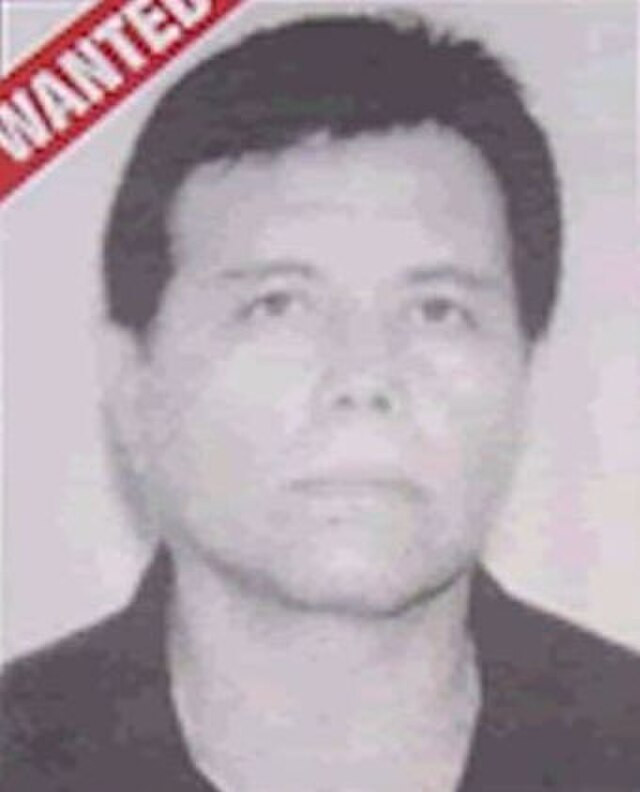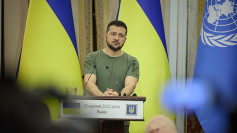In a dramatic turn of events that has shaken the Mexican drug cartel underworld, Ismael "El Mayo" Zambada was captured by U.S. authorities after being forcibly kidnapped by Joaquín Guzmán López, the son of notorious cartel leader Joaquín "El Chapo" Guzmán. This surprising arrest took place at a small airport near El Paso, Texas, marking a significant moment in the ongoing battle against the powerful Sinaloa Cartel.
Zambada, 76, was apprehended at a small airport near El Paso, Texas, alongside Guzmán López. The arrest followed a convoluted plot where Guzmán López allegedly tricked Zambada into boarding a plane under the pretense of inspecting real estate in northern Mexico. Instead, Zambada was ambushed, restrained, and transported to the U.S., Perez claimed.
"My client neither surrendered nor negotiated any terms with the U.S. government. Joaquín Guzmán López forcibly kidnapped my client," Perez stated. "He was ambushed, thrown to the ground, and handcuffed by six men in military uniforms and Joaquín. His legs were tied, and a black bag was placed over his head. He was then thrown into the back of a pickup truck and taken to a landing strip. There, he was forced onto a plane, his legs tied to the seat by Joaquín, and brought to the U.S. against his will."
This stunning revelation comes after weeks of speculation about the circumstances of Zambada's arrest. U.S. law enforcement officials, including the FBI and Homeland Security Investigations, raced to intercept the plane upon its arrival in El Paso, arresting both men. A Department of Justice statement confirmed the detentions, but the FBI has yet to comment on Perez's claims about the kidnapping.
Sources familiar with the investigation told Reuters that Zambada was duped into boarding the plane by Guzmán López, who had previously been in surrender talks with U.S. authorities. "El Mayo was the cherry on top," remarked one U.S. official, indicating that the arrest of Zambada was an unexpected bonus in the operation to capture Guzmán López.
Zambada, who pleaded not guilty to multiple charges including drug trafficking and money laundering, appeared in a Texas courtroom on Friday in a wheelchair. His attorney continues to assert that his client did not willingly come to the U.S. and was instead a victim of Guzmán López's deception.
The incident has sent shockwaves through the Mexican drug trafficking world, potentially setting the stage for a violent power struggle within the Sinaloa Cartel. Guzmán López, who faces federal indictments in Chicago and Washington, D.C., is believed to have orchestrated the plan to secure a more favorable plea deal from U.S. authorities and possibly aid his brother Ovidio, who was extradited to the U.S. last year.
The broader implications of this arrest are profound. The Sinaloa Cartel, co-founded by Zambada and El Chapo, is one of the most powerful criminal organizations in the world, heavily involved in the trafficking of fentanyl, which has become a major issue in the United States. The DEA has emphasized the role of the Sinaloa Cartel in the fentanyl crisis, which has led to thousands of deaths in the U.S.
As Zambada's arrest unfolds, it underscores the intricate and often brutal nature of cartel operations. It also highlights the complexities U.S. and Mexican authorities face in their ongoing battle against these criminal networks. The arrest has been hailed by U.S. President Joe Biden, who vowed to continue combating the "scourge of fentanyl" and praised the efforts of law enforcement.
The fallout from this arrest is expected to be significant. The potential for internal conflict within the Sinaloa Cartel is high, as the younger generation of traffickers, including El Chapo's sons, are known for their violent tendencies. This could lead to a destabilization of the cartel's power structure and further violence in Mexico.
The Mexican government, which was informed of the detentions by the U.S. but did not participate in the operation, continues to grapple with the implications of such high-profile arrests. Outgoing President Andrés Manuel López Obrador has taken a cautious approach to tackling the cartels, focusing on reducing violence rather than targeting cartel leaders, a strategy that has faced criticism.






